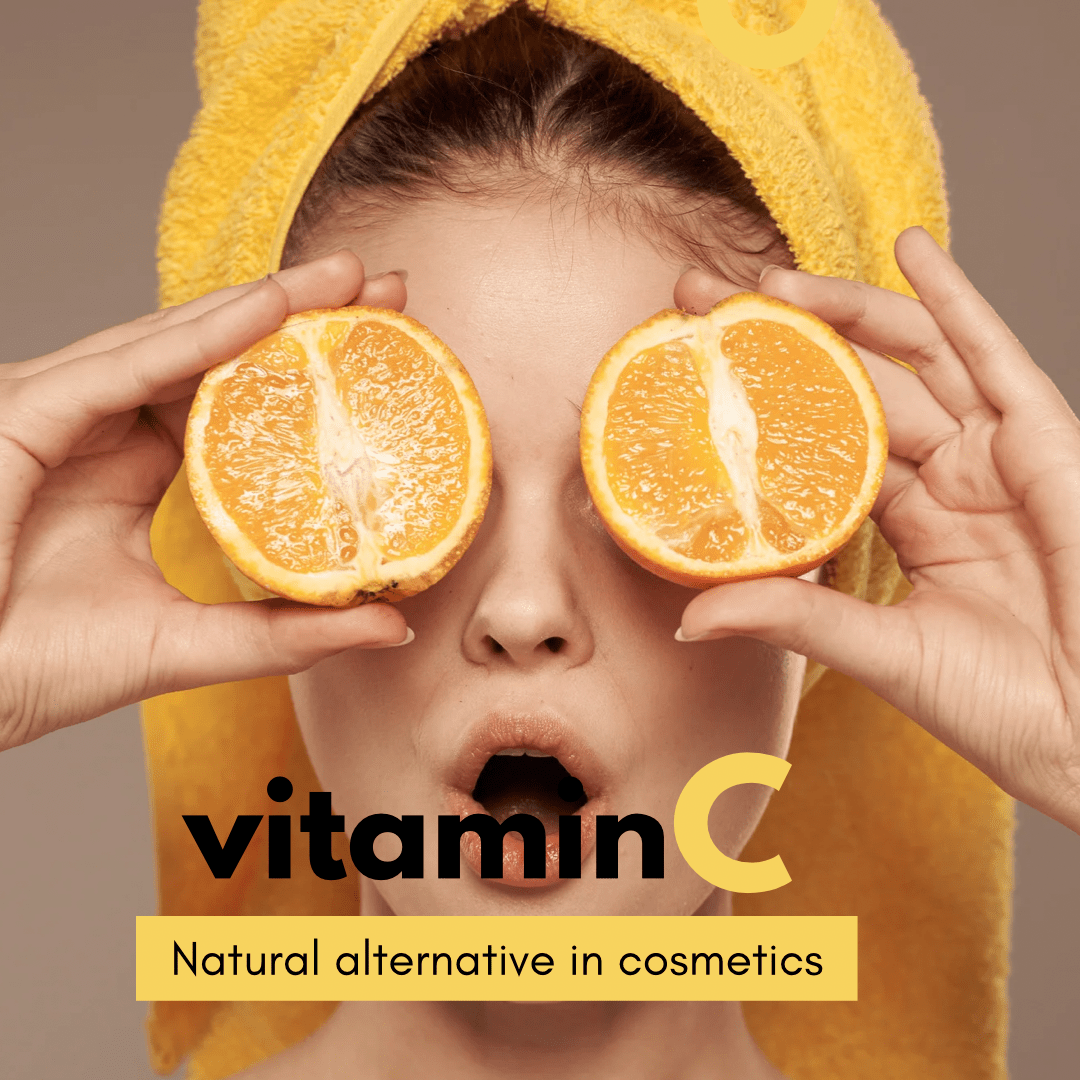Looking for a natural vitamin C alternative to your skin care regimen? Orange Peel extracts that also provide a sustainable approach can make that possible for you. The orange peels are a common waste by-product from mass producing orange juice and contain a rich source of L-Ascorbic Acid (Vitamin C). By using the orange peel that would otherwise be waste can help decrease a lot of major environmental problems (7). Orange peel and its extracts are good sources of phenols and vitamin C that can be used as powerful antioxidants and antibacterial (8). Orange peel extract helps stimulate collagen synthesis in the body (among many other health benefits). This new collagen is used to produce new skin cells that add volume to the skin to make it tight and supple (6).
The high vitamin C content of orange peels and natural AHAs, makes it a very beneficial skin brightener, and scars reducer (1). The rich content of nutrients and antioxidants in orange peel make it great at renewing and regenerating new skin cells (3). It is also known to regulate sebum production thus contributing to the reduction of acne. And, on the reverse side, provides some much-needed hydration to keep the skin smooth and moisturized. Orange peels also contain a good amount of flavonoids, phytochemicals, and antioxidants along with an array of nutrients such as calcium, magnesium, and vitamins A, B, and C. (1).
The peel of oranges contains a higher concentration of flavonoids and phytonutrients than its inner flesh. For this reason, these useful properties of orange peels can help address some common beauty and cosmetic skin care issues. Normal skin contains high concentrations of vitamin C. However, several reports have indicated that vitamin C levels are lower in aged or photodamaged skin (6). The rind of oranges is replete with antioxidants that can help protect the skin from the harmful UV rays of the sun (2). Exposure to solar radiation releases free radicals (unstable reactive molecules) inside the skin that causes it to break down its collagen thus causing it to become loose and wrinkly. Orange peel rich antioxidants constituents, help neutralize these free radicals, thereby reducing collagen loss and preventing premature skin aging. (4,6).
Additionally, the natural exfoliating nature of orange peel makes a great gentle scrub for sun-damaged skin. Massaging it onto the skin can help remove dead cells on the surface to reveal the new skin underneath. While there are many DIY skin care recipes, caution is to be applied to avoid the negative aspects associated with using citrus base ingredients. Additionally, it is unlikely that nutrients delivered via topical application would easily penetrate into the lower layers of the dermis, therefore it is imperative that the correct concentration of orange peel extract in combination with other ingredients are used to create a balanced formula (5, 6). This is especially important for those with very sensitive skin. The bottom line is orange peel can be a great natural alternative to vitamin C in skin care products. However, its efficacy is dependent on the method of extraction and the formulation of the cream or serum used on the skin.
References:
- Nutrient, phytochemical, and antinutrient composition of Citrus maxima fruit juice and peel extract. https://www.ncbi.nlm.nih.gov/pmc/articles/PMC5980406/
- Natural Antioxidants: Multiple Mechanisms to Protect Skin From Solar Radiation. https://www.ncbi.nlm.nih.gov/pmc/articles/PMC5928335/
- Antioxidant Activity of Orange Flesh and Peel Extracted with Various Solvents. https://www.ncbi.nlm.nih.gov/pmc/articles/PMC4287321/
- Natural Herbs and Spices: A Great Resource for Skin Care Cosmetics. http://article.jopsci.org/pdf/10.11648.j.jps.20190704.13.pdf
- Safety Assessment of Citrus-Derived Peel Oils as Used in Cosmetics. https://pubmed.ncbi.nlm.nih.gov/31522650/
- The Roles of Vitamin C in Skin Health. https://www.ncbi.nlm.nih.gov/pmc/articles/PMC5579659/
- Integration of Maceration and Freeze Concentration for Recovery of Vitamin C from Orange Peel Waste. https://iopscience.iop.org/article/10.1088/1755-1315/268/1/012101/pdf
- Efficacy of ascorbic acid and different sources of orange peel https://www.tandfonline.com/doi/abs/10.1080/10495398.2022.2101114





